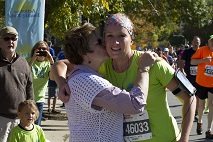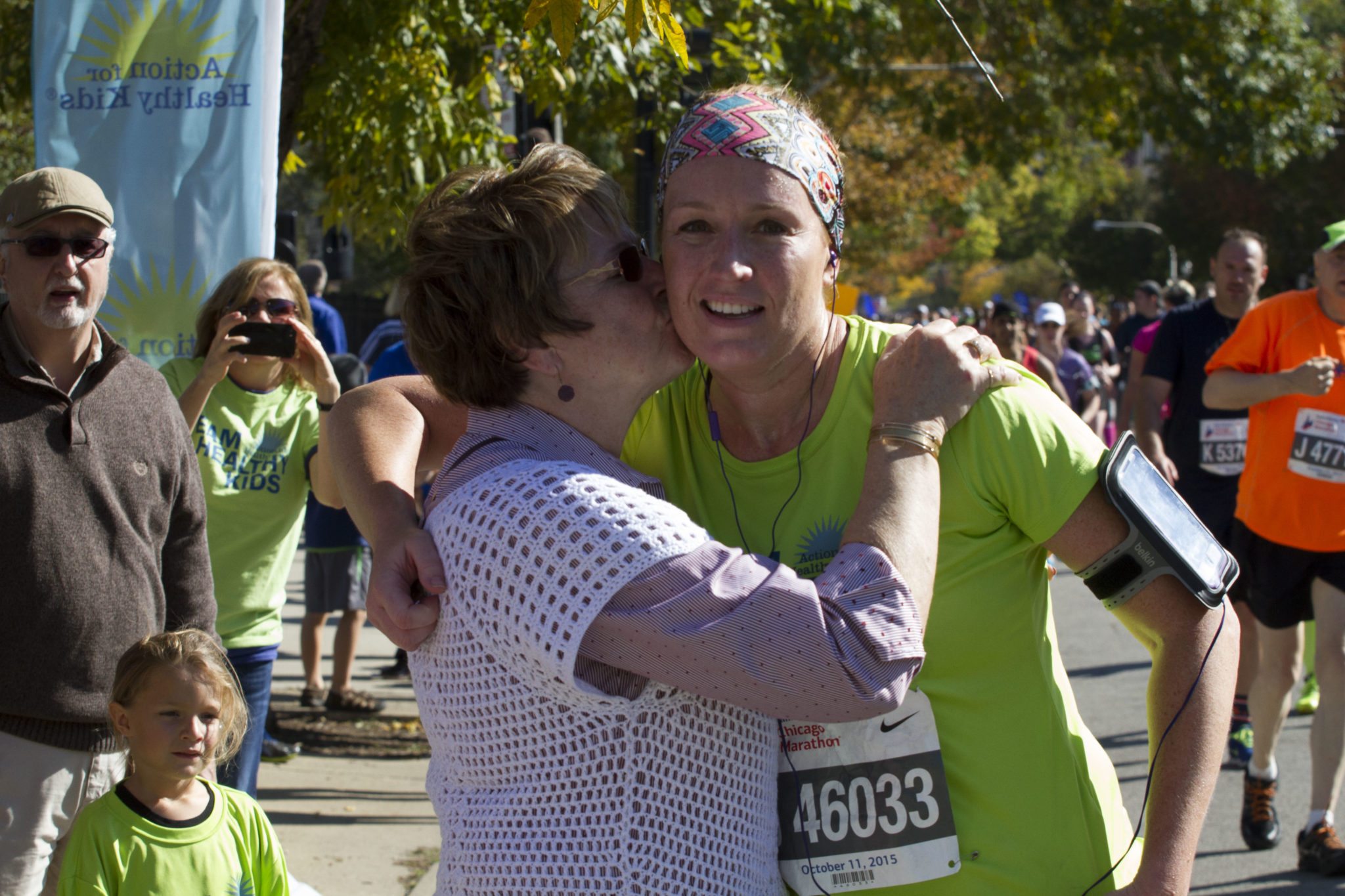Healthy Tips for Training Bodies

Have you ever thought about running a marathon? As marathon season is spreading across the country, many people get inspired to take the challenge.
Training for a marathon takes time and perseverance. I know this firsthand because I ran the Chicago Marathon in 2012 to benefit Action for Healthy Kids. It’s important to not only physically train but also learn how to balance your nutrition, to feed your body the nutrients it needs during training. As a Together Counts™ partner, I recognize that a healthy diet is always essential, but it is especially important when training for endurance events like marathons.
Here are five tips to help you learn how to balance your nutrition while in training. If running a marathon isn’t for you, these tips can also be used while training for any fitness goal.
- For a morning workout or run that’s less than one hour, have an electrolyte drink or a banana first. For a longer run or workout in the morning, eat a light breakfast about one hour before. Most of the energy from dinner the night before is used up by the morning and your blood sugar might be low. If you don’t eat, you might feel sluggish or lightheaded when you exercise.
- It is important to size up your pre-workout meals based on when you will be exercising.
- Eat a meal at least three to four hours before exercising.
- Eat a small meal two to three hours before exercising.
- Eat a small snack an hour before exercising.
- Most people can eat small snacks right before and/or during exercise. Snacks eaten shortly before exercising may not give you added energy, but it can help keep your blood sugar up and prevent distracting hunger pangs. A snack is important if you plan a workout several hours after a meal. Good snack options include energy bars, bananas or other fresh fruit, fruit smoothies, whole-grain bagel or crackers, low-fat granola bars or peanut butter sandwiches.
- After a workout it is important to help your muscles recover and to replace their glycogen stores. If possible, try to eat a meal that contains both protein and carbohydrates within one hour of your exercise session. Foods that will help your body refuel and recover post-workout include peanut butter sandwiches, low-fat milk and pretzels, hard-boiled eggs and fruit, hummus and crackers or raw veggies or chicken with brown rice.
- Avoid trying any new foods or drinks on race day because you never know how your body will react. As you train, consider keeping a journal to monitor how your body reacts to certain meals and snacks so that you can tweak your diet for optimal performance.
Before your next exercise session, try fueling your body with these snack and meal tips!
Action for Healthy Kids® is a nationwide grassroots network supporting school-based healthy eating and physical activity improvements that increase academic success. With funding opportunities, expert technical assistance and our flagship program, Game On, we mobilize schools, administrators and parents to develop healthy school environments for children. To learn more about the ways our 85,000+ volunteer network is helping to make Every Kid Healthy™, visit us at www.ActionforHealthyKids.org, on Facebook and on Twitter.
For more fitness tips, take a look at these other reads from Together Counts!

